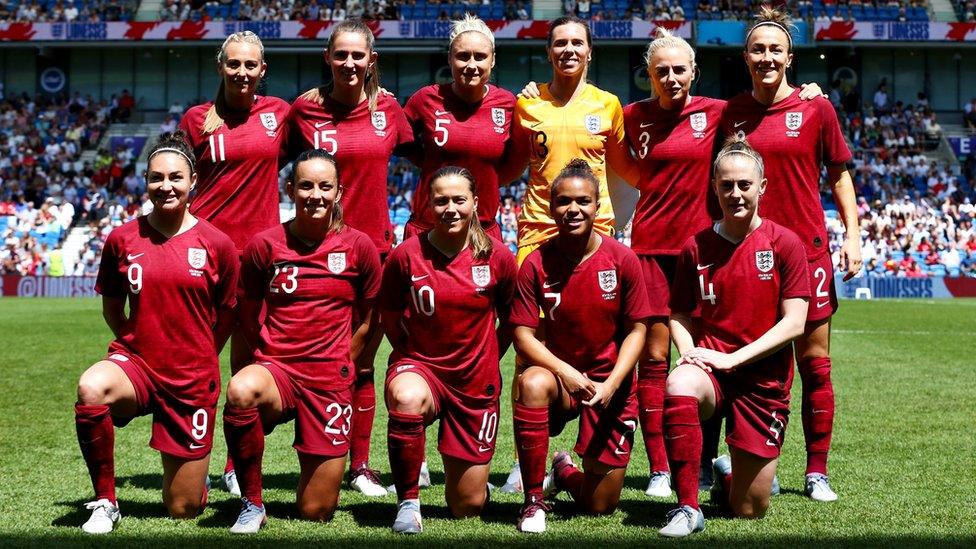Lewes FC: The football club that pays women the same as men
- Published
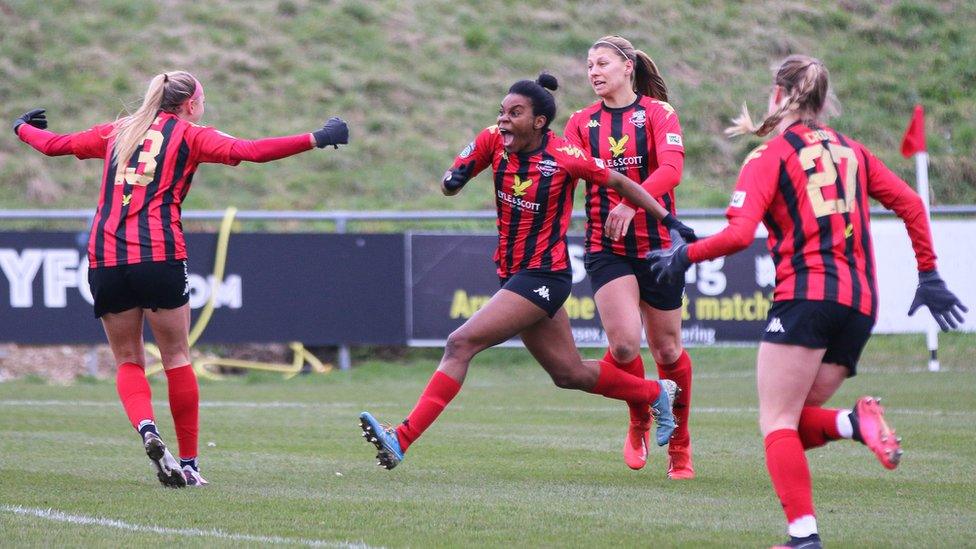
Lewes FC's ground, The Dripping Pan, makes you feel like you're back in football's "good old days". Local beer, local pies, cramped turnstiles and proper old-fashioned terraces.
Speak to anyone at the club, though, and you get a completely different impression.
"This is the future - and we're already there. We're ahead of the game, even if people haven't heard of us," the club's general manager Maggie Murphy says.
We're here because 2021 marks 100 years since the FA banned women's football, external for the best part of half a century and Lewes FC claims to be the only club no longer living in the ban's shadow.
Why? Because it pays its male and female players equally.
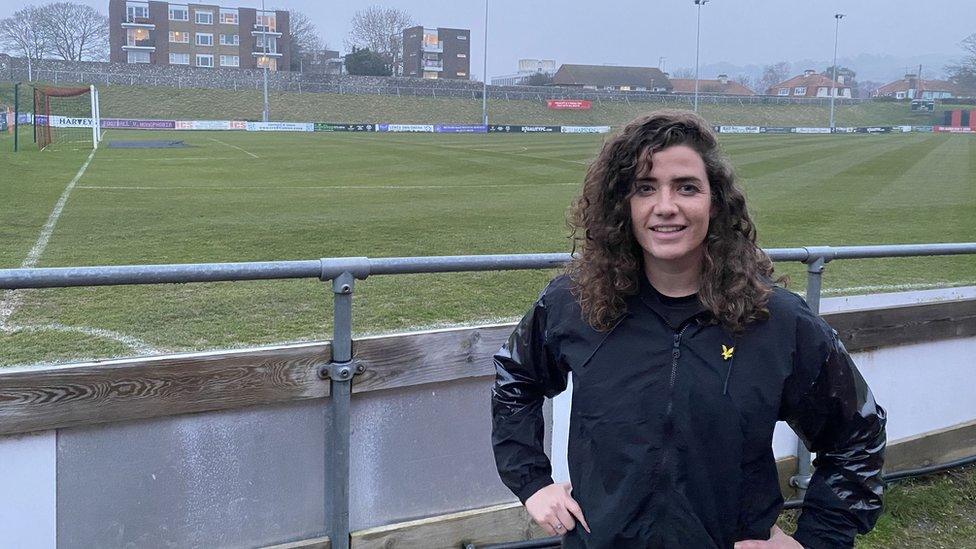
Maggie says clubs that don't invest in their women's teams will be "left by the wayside"
"I can't remember exactly how old I was when I first learnt that women's football had been banned, but I know it was far too late," midfielder Sarah Kempson tells us from underneath the plastic roof of the home dugout.
"A lot of people don't know that it even happened, and that's the problem. People think that women's football is just growing now, but it's actually regrowth.
"We're getting back to where we were."
The ban, on the grounds that football was "quite unsuitable for women", lasted from 1921 until the end of the 1960s. Before it was put in place, in the wake of World War One, women's matches were drawing in crowds of over 50,000 fans.
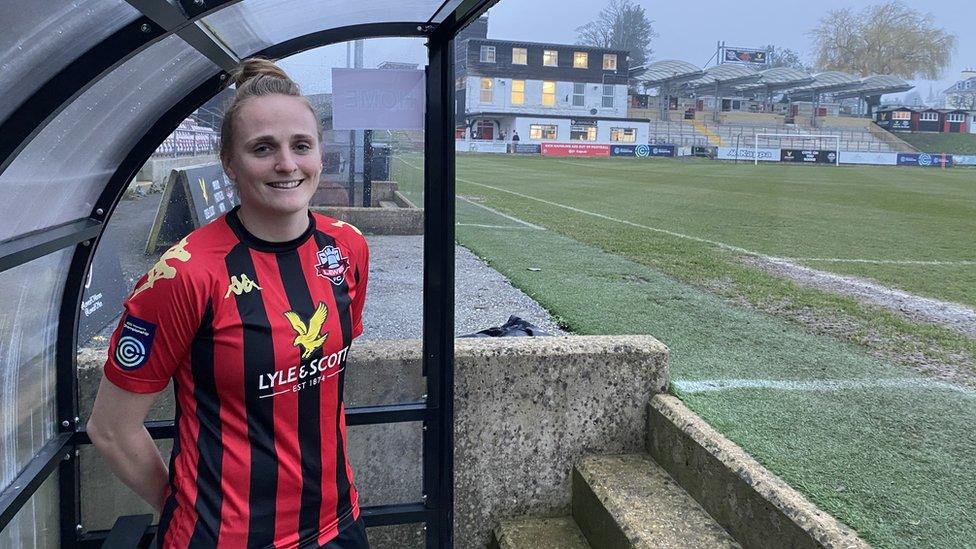
For Sarah, the last few years have represented a "massive change" in how women's sports are viewed
In the grand scheme of things, Lewes is still a pretty small club - albeit one where both the women's and men's teams have a "six-figure playing budget".
But while the men's squad is way down in the seventh tier of English football, the women's team is in The Championship, the sport's second highest division.
Still, Sarah - like many of the players here - has come straight to training from her day job.
"I think society needs to be more educated," she says.
"Once you've watched women's football you can't not be inspired by it, and want to be part of it."
She's adamant, along with everyone we speak to, that the equal pay system here could, and should, be put in place across the board.
But less than ten minute's drive from The Dripping Pan is a huge reminder of how much would need to change for that to happen.
Brighton FC are Lewes' intimidating neighbours, with a 30,000 capacity stadium and a men's squad worth hundreds of millions of pounds.
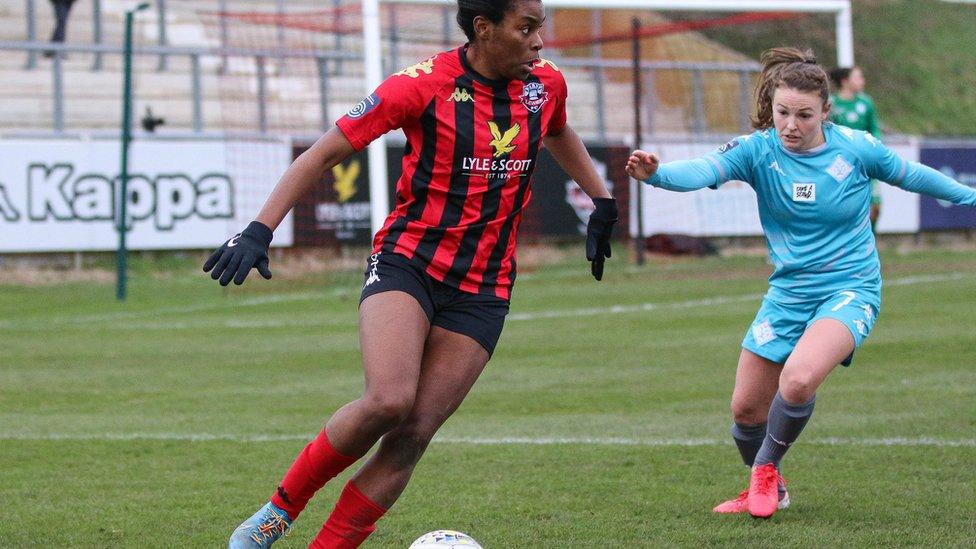
Ini Umotong in her own words: "strong and quick"
In recent years some countries, including England, have promised to pay their national sides the same, but for clubs it's a different story.
And whether its through sponsorship, TV deals or prize money, the bulk of the cash in football still flows through the men's game.
"I think that exposure comes first," striker Ini Umotong, who's just signed for Lewes from Sweden's top division, tells us.
"At the moment, women's football isn't anywhere near as broadcasted as men's and that's where the money comes from.
"If you look at the last Women's World Cup there were sell-out crowds. So the demand is there, but we don't have the exposure yet."
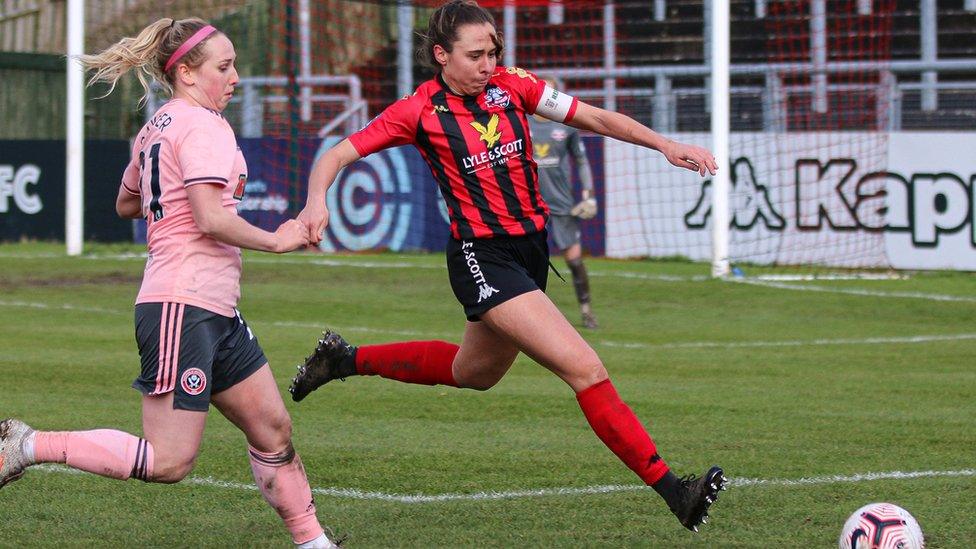
Lewes FC captain Rhian Cleverly in action
As the players trickle away from the clubhouse for a late-night training session on a nearby Astroturf pitch, we grab captain Rhian Cleverly.
"When I was a kid I never thought I could be a professional footballer and change has to start somewhere," she says.
"There's a reason why men are so far ahead. They started much before us and then there's the ban, so we're at a disadvantage.
"Change is uncomfortable and sometimes it doesn't feel like it's possible, but if you make those steps, and it takes time, there can be a bright future for women's football."


Follow Newsbeat on Instagram, external, Facebook, external, Twitter, external and YouTube, external.
Listen to Newsbeat live at 12:45 and 17:45 weekdays - or listen back here.
Related topics
- Published10 November 2020
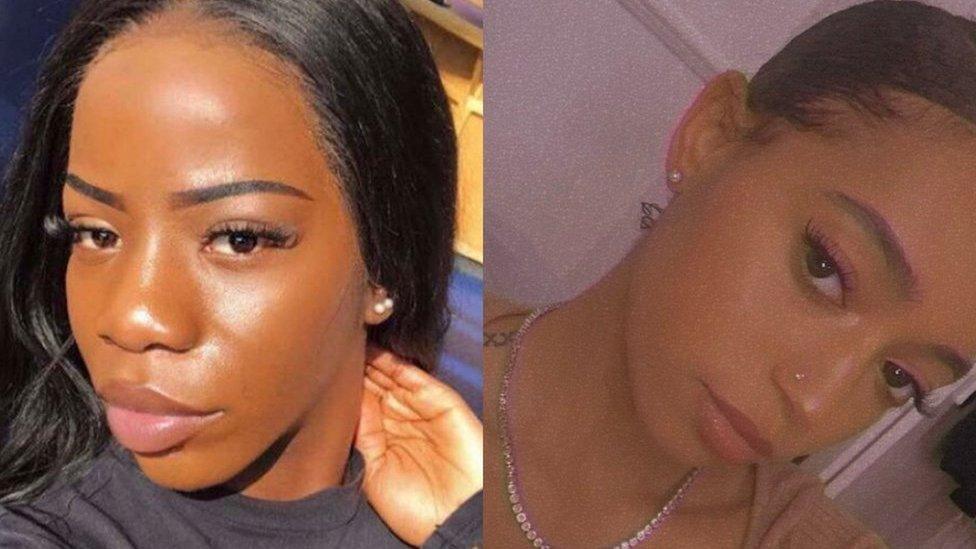
- Published8 June 2019
